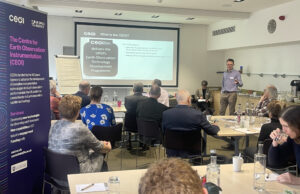New Relic Study Reveals UK and Ireland Businesses Face an Annual Median Cost of $38 Million from High-Impact IT Outages

Findings from a survey of 1,700 IT and engineering professionals worldwide show staggering cost of outages to businesses, who are increasingly seeking AI-strengthened observability platforms and capabilities to detect and resolve outages
The data shows that AI adoption is the number one driver of observability demand; usage of AI monitoring experienced double-digit growth rate in the past year
New Relic, the Intelligent Observability company, today released its 2025 Observability Forecast, the industry’s most comprehensive report on the state of observability. Surveying over 1,700 IT and engineering leaders and team members across 23 countries and 11 industries, the report highlights key focus areas, challenges, and trends influencing observability investments like the growing adoption of enterprise AI. The data showed that the cost of any digital business downtime is profound—with high-impact outages carrying a median cost of $2 million USD per hour, or approximately $33,333 for every minute systems remain down. For the UK and Ireland specifically, the annual median cost of high-impact IT outages for organisations surveyed in those countries is $38 million per year.
Respondents across the UK and Ireland see tool sprawl as a significant challenge, with a third (33%) of organisations citing too many monitoring tools and siloed data as a barrier to achieving full-stack observability, compared to the regional EMEA average of 27%. Encouragingly, UK and Ireland organisations experience less costly and frequent outages than their EMEA counterparts, signalling a more mature observability practice.
Outages are time consuming and expensive
The research reveals the top three primary causes of outages for UK and Ireland organisations as — network failure, third-party or cloud provider services failure, and someone making a change to the environment. More than a quarter (26%) of UK and Ireland organisations report experiencing high-business-impact outages at least once a week, compared with the EMEA average of 37%. The financial impact of these outages is huge. Twenty-two percent of UK and Ireland respondents stated that these disruptions cost their organisations between $1-3 million per hour in lost revenue — and alarmingly, over a third (34%) of UK and Ireland respondents said they either don’t know, or aren’t tracking the financial impact of outages. This is well above the EMEA average of 23%. Notably, the data shows that UK and Ireland engineers are spending a quarter (25%) of their time fighting fires or addressing disruptions, taking focus away from developing new features or coding innovations.
Increasing AI adoption heightens awareness of visibility challenges
As large-language-model-powered applications and agentic AI become more widely adopted, they introduce new visibility challenges that traditional monitoring methods cannot solve. Without modern observability built for the AI era, silent issues can ripple through systems unnoticed. The research shows the majority of organisations have recently become aware of these challenges, as the use of observability’s AI monitoring capabilities in the UK and Ireland went from 35% in 2024 to 45% in 2025—a double-digit growth rate year-over-year. Only 5% of UK and Ireland businesses are not deploying or planning to deploy AI monitoring.
Observability is driving business value from productivity gains
UK and Ireland businesses excel at realising productivity gains through observability. Forty-nine percent of practitioner respondents said observability has helped free up time to work on other projects, a 14% increase from 2024 and significantly higher than the 34% found in EMEA. 41% of UK and Ireland respondents said observability increases productivity by finding and resolving issues faster, up 12% on 2024. Curiously, a fifth (20%) of respondents are not tracking the ROI of their observability investments versus 10% in EMEA.
“Our latest findings are a wake-up call for UK and Irish organisations, which are severely underestimating the business cost of IT outages. Organisations that aren’t investing in observability not only risk huge revenue losses, the reputational damage from frequent outages is equally, if not more concerning,” said New Relic EMEA Field CTO, Manesh Tailor. “The data is clear: companies that embrace intelligent observability across their entire technology stack experience less downtime, fewer critical outages, a faster time to resolution and increased operational benefits, enabling them to achieve their core business goals.”
Other key findings from the report include:
- Strategic priorities continue to shape investments. Security, governance, and compliance were cited as key drivers of observability adoption by almost half (48%) of UK and Ireland respondents. AI adoption follows closely at 34%, with cost management noted by 33%.
- Technical maturity in observability practices drives results. Data suggests the UK and Ireland boasts an advanced DevOps culture, with 59% of respondents claiming they are employing CI/CD practices versus 48% in EMEA. More than half (51%) automate incident response versus 42% in EMEA, indicating a high level of maturity and sophistication in UK and Ireland observability practices. These advanced practices are driving real benefits. The top benefit of observability for organizations across the UK and Ireland is increased operational efficiency, followed by improved uptime and reliability.
- Businesses are taking steps to consolidate observability tools. The data shows a 27% decrease in the average number of observability tools per organisation globally from 2023 to 2025. 48% of respondents state that their organisations plan to consolidate their observability tooling within the next year — a notable increase from 31% in 2024. Preference for a single, unified platform is also on the rise, with 40% favoring this approach overall, and as many as 47% in the UK and Ireland.




